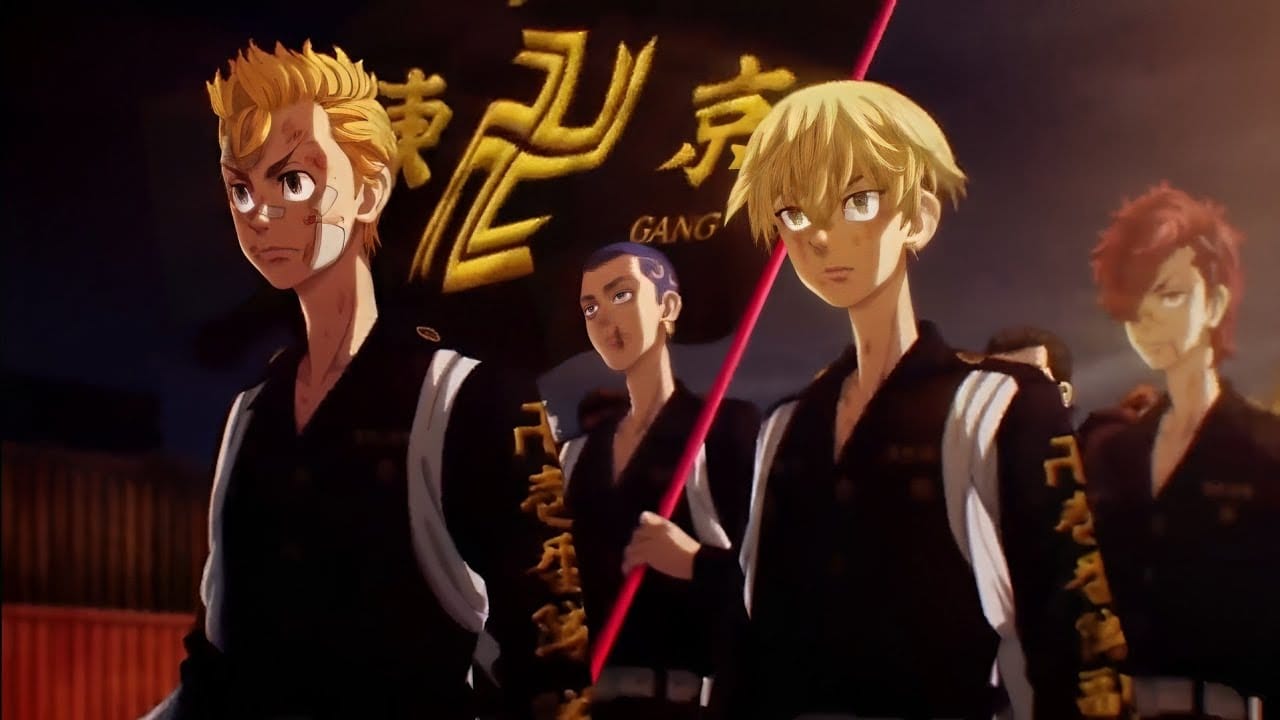The Tokyo Revengers manga soared to fame and experienced a meteoric rise to prominence with its anime adaptation in Spring 2021. Everybody was talking about the anime, the manga’s backlogs were flying off the shelves, and even its opening theme song, Cry Baby by Official Hige Dandism, ended up being one of the biggest chart-topping sensations of recent times in Japan.
Tokyo Revengers Season 1 was a phenomenon in Japan.
The manga series sold over 24.9 million copies that fiscal year, and the series was practically a phenomenon in the country. It seemed like it was an IP that would be relevant for years to come, and it was all set to be a long-lasting hit.
But somehow, during the fifteen months it took before the anime returned for its sophomore outing, the hype for the anime had drowned out significantly. And by the time Season 3 aired, it had been completely vanquished.

Tokyo Revengers dominated Japanese Streaming and VOD Services for months and was the Most-Watched TV Show on Streaming in Japan for three consecutive months when the first season came out. In much bleaker contrast to that, Season 3, which is currently airing, has not even made the Top 20.
The very first volume of the anime’s first season sold 6,068 copies, while Volume 5, its highest-selling and penultimate release, sold 9,673 copies. In stark contrast, the highest-selling BD/DVD disc for Season 2 of Tokyo Revengers was its first volume, which only managed to sell over a modest 1,762 copies.
One of the major reasons for this massive dropoff in viewership for Tokyo Revengers is the fact that the anime’s second and its latest third seasons are only available to stream in Disney+ in most countries, including Japan. This has hindered the series’ growth in a significant way and has had a huge impact on its viewership both in Japan and outside of it as well.
Tokyo Revengers Season 2: The Reason Behind the Downfall.
But that is not the only reason for it since shows like Loki and The Mandalorian have still managed to become prominent hits in Japan despite only being available for streaming on Disney+ exclusively. Both the new seasons have had a great deal of promotions and are available on broadcast television on MBS and TV Tokyo. And despite that, it has seen quite a negligent viewership and interest from the masses.
WRITE FOR US AND GET PAID: WE ARE LOOKING FOR CONTRIBUTORS!
It hasn’t even been a year since the manga series ended, but during October, the month of the premiere of Season 3, the Tokyo Revengers manga didn’t even sell 100,000 copies in backlogs. Something which the likes of Haikyuu!! have continued to do despite ending close to three years ago now.
And that is certainly because of the overall mood and the disappointment surrounding the manga’s climax, which has killed any major hype the series had in Japan and outside of it. Through its run, Tokyo Revengers faced a notable decline in quality, leaving fans questioning its overall trajectory.
While boasting strong characters and intense fights, characteristic of a typical shonen series, the execution of the narrative contributed to a sub-optimal reading experience, particularly in the latter parts of the manga.
At the centre of the discontent has been its protagonist, Takemichi, whose character has been subjected to what seems like a unanimous criticism for his lack of growth and character development. Even more than 200 chapters into the series, Takemichi hardly showed any signs of growth and remained this annoying guy who excessively complained and just whined at the top of his lungs all the time. It was downright irksome, considering he was supposedly the only adult in the show and had the ability to travel back in time, and he hardly ever did anything of substance or significance with it.
The manga’s climax and its time travel mechanics also went on to become frustrating as the series dragged on. The utilisation of time travel in the storyline, a central element of the narrative, suffered from inconsistencies and a lack of clear, logical rules. While time travel inherently involves pseudo-science, Tokyo Revengers failed to establish consistent parameters, leading to confusion among fans regarding its functioning.
The manga’s conclusion has become a major point of contention. Described as rushed, it not only left a significant portion of the fanbase unsatisfied but also undid the character development painstakingly built throughout the series. Relationships formed during the course of the story were abruptly erased in a single chapter, contributing to the disappointment. Moreover, the rushed ending failed to address plotholes and left many character origins unexplored.
While Tokyo Revengers initially had quite a fair bit of promise, its exclusive streaming deal with Disney+ and its heavily criticised climax and conclusion have ultimately hurt the series to a point where nobody seems to care about it.
READ MORE: Frieren: Beyond Journey’s End Premieres with Record Viewership
Tokyo Revengers had over 1.2 million members on MyAnimeList for its first season, but Season 2 saw a massive decline to 319,000 members, and Season 3, which aired just months after the second, has only accumulated 125,000 members. This has truly been a failure of epic proportions, however you put it.

